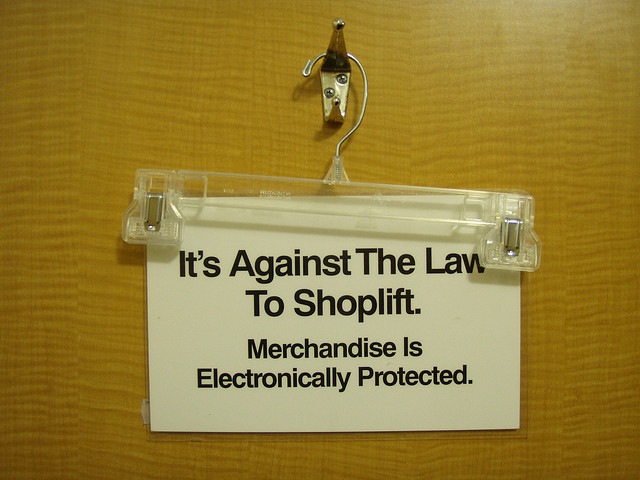How Serious is Shoplifting?
Shoplifting in Texas
Shoplifting is a fairly common crime. Compared to other offenses, this one may seem like a relatively minor criminal charge. In reality, the penalties for shoplifting can be serious. Being convicted for this offense can lead to fines, probation, restitution payments and being banned from certain properties. Repeated offenses or shoplifting high-value items can even lead to time behind bars.
What Is Shoplifting?
Shoplifting is considered a type of theft. In order for an action to qualify as theft in Texas, the action must be done without the owner’s consent with the intent to take an item without paying the owner.
Although shoplifting charges are usually applied to cases involving an attempt to physically steal merchandise from a store, these charges can also be applied to cases involving deceit or theft by check.
For example, if Sarah takes a pair of sunglasses from a store shelf, slips them in her pocket and then leaves the store without paying, she may be charged with shoplifting.
However, if Sarah swaps the price tag on the sunglasses for another tag with a lower price, pays the lower price and then leaves, she can still be charged with shoplifting. This is also true if Sarah pays for the sunglasses with a bad check.
All of these incidents may lead to an arrest and legal consequences.
Legal Penalties
The penalties for a shoplifting conviction can vary based on the criminal history of the defendant and the value of the stolen merchandise. The penalties can be increased if the defendant attempted to pay for merchandise with a bad check.
Some of the penalties for theft of property worth $50 or less include:
- Conviction on a Class C misdemeanor charge
- A fine of up to $500
- Penalty can be enhanced to a Class B misdemeanor charge if the defendant has a previous theft conviction.
Some of the penalties for theft of property worth between $50 and $500 can include:
- Conviction on a Class B misdemeanor charge
- A fine of up to $2000
- Incarceration in jail for a term of up to 180 days
In some cases, a judge can choose to impose additional penalties on top of the ones listed above. These are usually up to the discretion of the court and may not apply in all cases. They can include:
- Probation
- Mandatory restitution of the value of the stolen property
- Mandatory attendance at educational classes
- Community service
Legal Defenses
In order to build a strong defense against shoplifting charges, it’s very important to hire an attorney. Even if a defendant plans to plead guilty to the shoplifting charges and face the punishment, it’s still a good idea to consult an attorney.
An attorney may be able to negotiate with the court to get a plea bargain in exchange for a guilty plea. This could lead to reduced charges and penalties.
An attorney may be able to argue that there is insufficient evidence to issue a shoplifting conviction. If the property was never recovered and the defendant was not recorded by security cameras, the attorney may argue that eyewitness identification is not sufficient to find the defendant guilty.
If there is strong evidence against the defendant, the attorney could try another tactic. The attorney could point to the fact that the defendant was acting out of desperation because he or she had lost a job. The attorney may also point out a defendant’s lack of criminal history if it is a first-time offense.
If this is successful, the judge may agree to be lenient on the defendant and offer deferred adjudication. Successfully completing deferred adjudication can expunge the defendant’s record. This means that the charge may not show up on future background checks. Whatever the case, it’s always best to consult with an attorney rather than face shoplifting charges alone.
Photo Daniel Lobo | Used under Creative Commons image attribution license 2.0

